[ad_1]
Want to help your students make strong connections with the material? Ensure you’re using all six levels of cognitive thinking. This means asking lower-order thinking questions as well as higher-order thinking questions. Learn more about each here, and find plenty of examples for each.
What are lower-order and higher-order thinking questions?
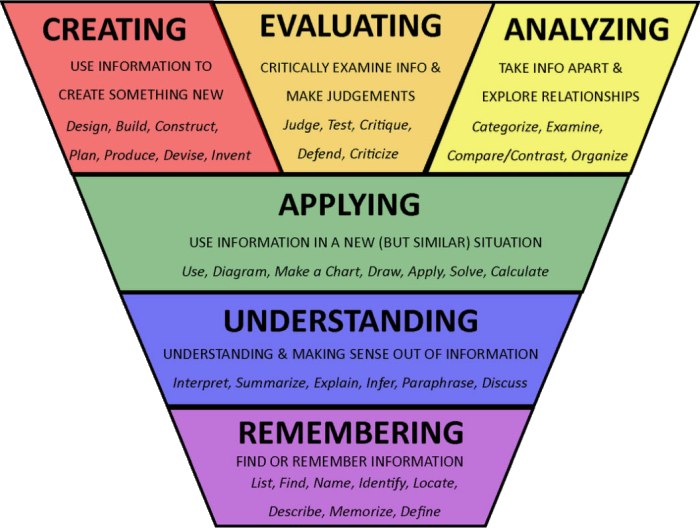
Source: University of Michigan
Bloom’s Taxonomy is a way of classifying cognitive thinking skills. The six main categories—remember, understand, apply, analyze, evaluate, create—are broken into lower-order thinking skills (LOTS) and higher-order thinking skills (HOTS). LOTS includes remember, understand, and apply. HOTS covers analyze, evaluate, and create.
While both LOTS and HOTS have value, higher-order thinking questions urge students to develop deeper connections with information. They also encourage kids to think critically and develop problem-solving skills. That’s why teachers like to emphasize them in the classroom.
New to higher-order thinking? Learn all about it here. Then use these lower- and higher-order thinking questions to inspire your students to examine subject material on a variety of levels.
Remember (LOTS)
- Who are the main characters?
- When did the event take place?
- What is the setting of the story?
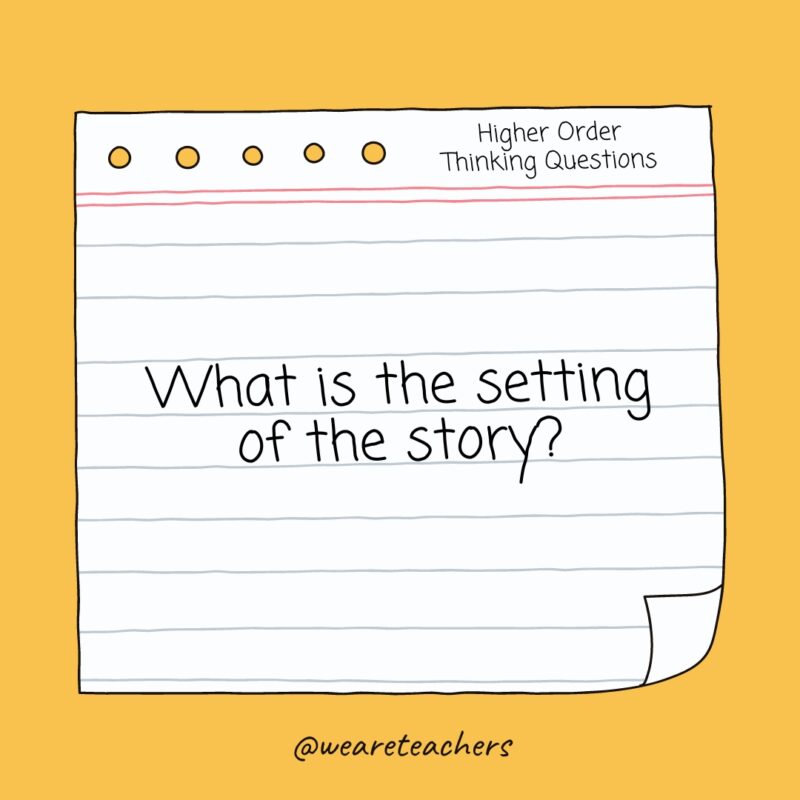
- Where would you find _________?
- How do you __________?
- What is __________?
- How do you define _________?
- How do you spell ________?
- What are the characteristics of _______?
- List the _________ in proper order.
- Name all the ____________.
- Describe the __________.
- Who was involved in the event or situation?
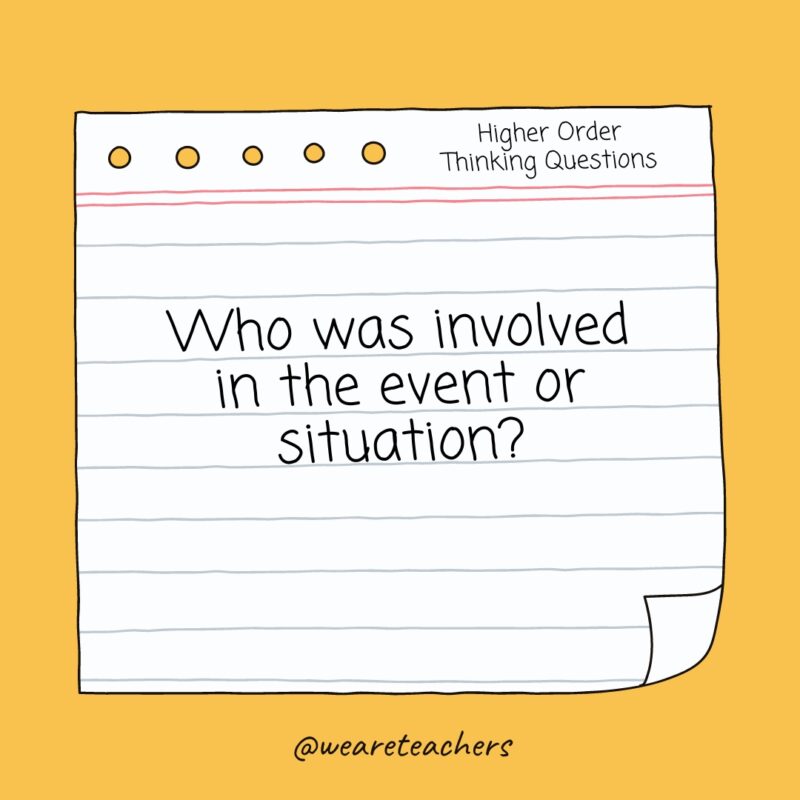
- How many _________ are there?
- What happened first? Next? Last?
Understand (LOTS)
- Can you explain why ___________?
- What is the difference between _________ and __________?
- How would you rephrase __________?
- What is the main idea?
- Why did the character/person ____________?
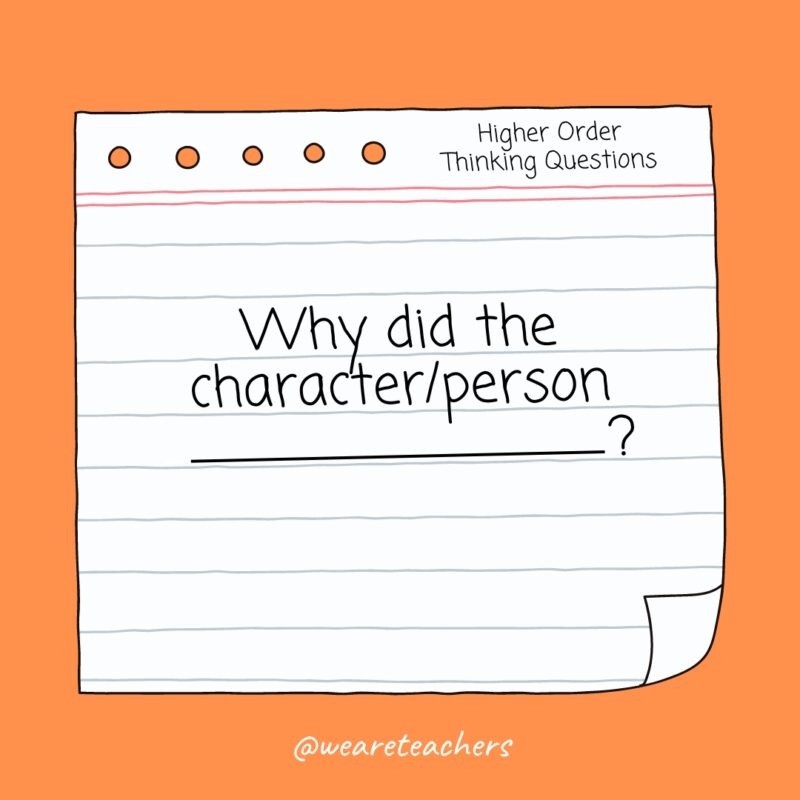
- What’s happening in this illustration?
- Retell the story in your own words.
- Describe an event from start to finish.
- What is the climax of the story?
- Who are the protagonists and antagonists?
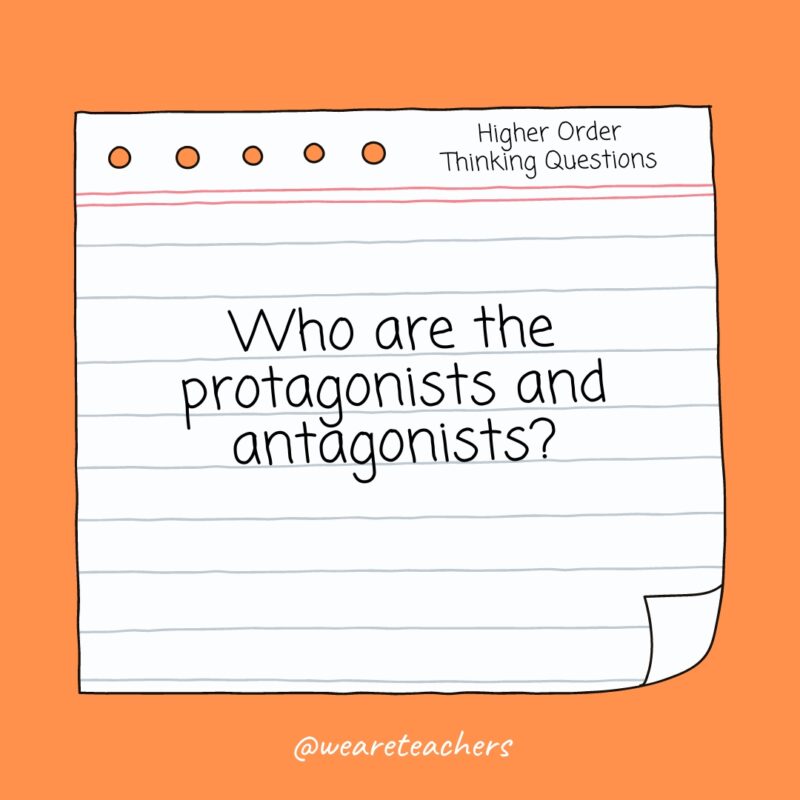
- What does ___________ mean?
- What is the relationship between __________ and ___________?
- Provide more information about ____________.
- Why does __________ equal ___________?
- Explain why _________ causes __________.
Apply (LOTS)
- How do you solve ___________?
- What method can you use to __________?
- What methods or approaches won’t work?
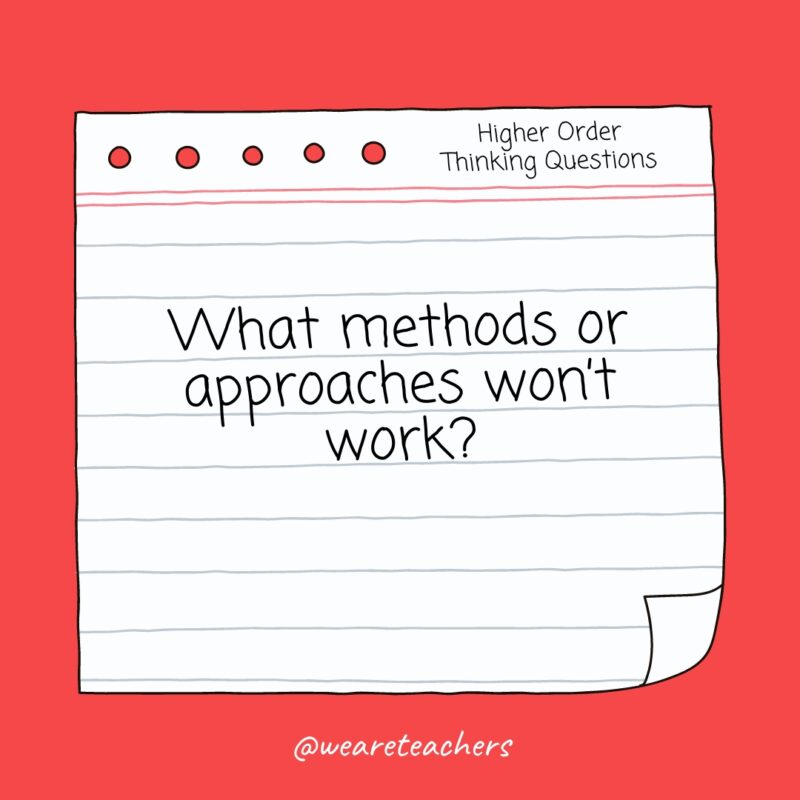
- Provide examples of _____________.
- How can you demonstrate your ability to __________.
- How would you use ___________?
- Use what you know to __________.
- How many ways are there to solve this problem?
- What can you learn from ___________?
- How can you use ________ in daily life?
- Provide facts to prove that __________.
- Organize the information to show __________.
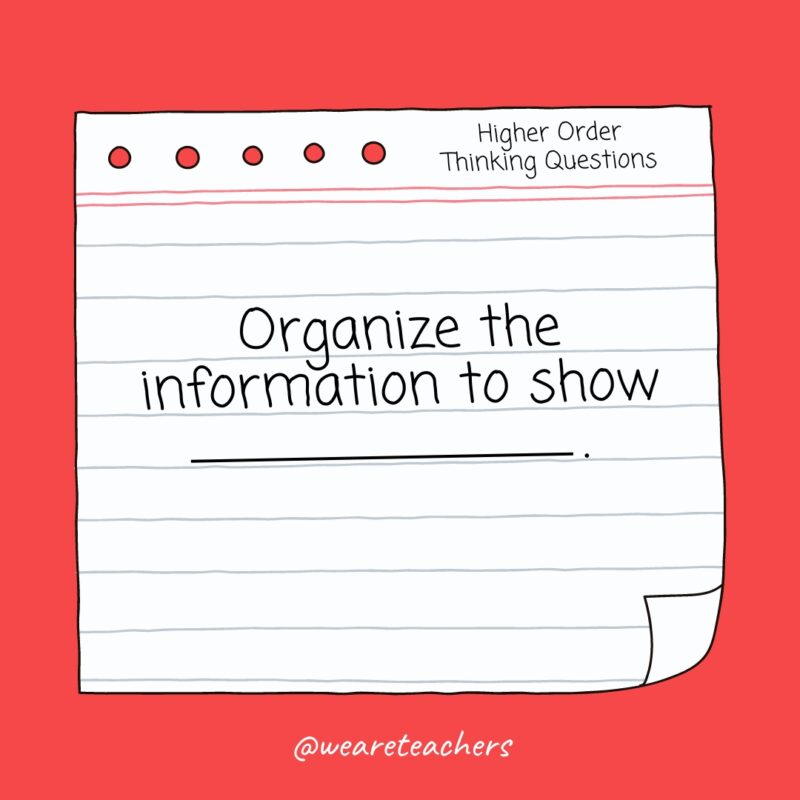
- How would this person/character react if ________?
- Predict what would happen if __________.
- How would you find out _________?
Analyze (HOTS)
- What facts does the author offer to support their opinion?
- What are some problems with the author’s point of view?
- Compare and contrast two main characters or points of view.
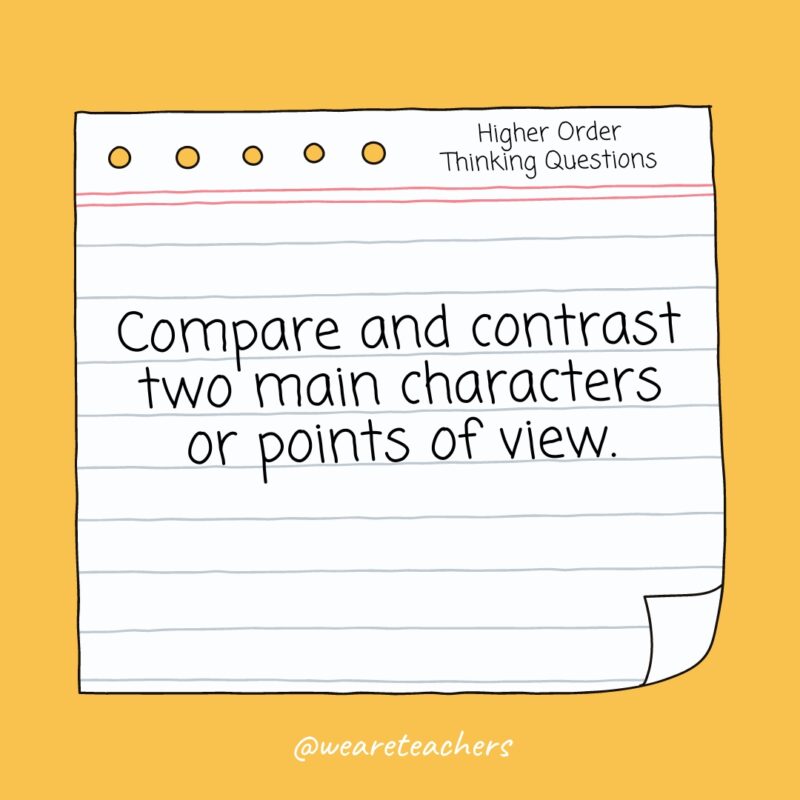
- Discuss the pros and cons of _________.
- How would you classify or sort ___________?
- What are the advantages and disadvantages of _______?
- How is _______ connected to __________?
- What caused __________?
- What are the effects of ___________?
- How would you prioritize these facts or tasks?
- How do you explain _______?
- Using the information in a chart/graph, what conclusions can you draw?
- What does the data show or fail to show?
- What was a character’s motivation for a specific action?
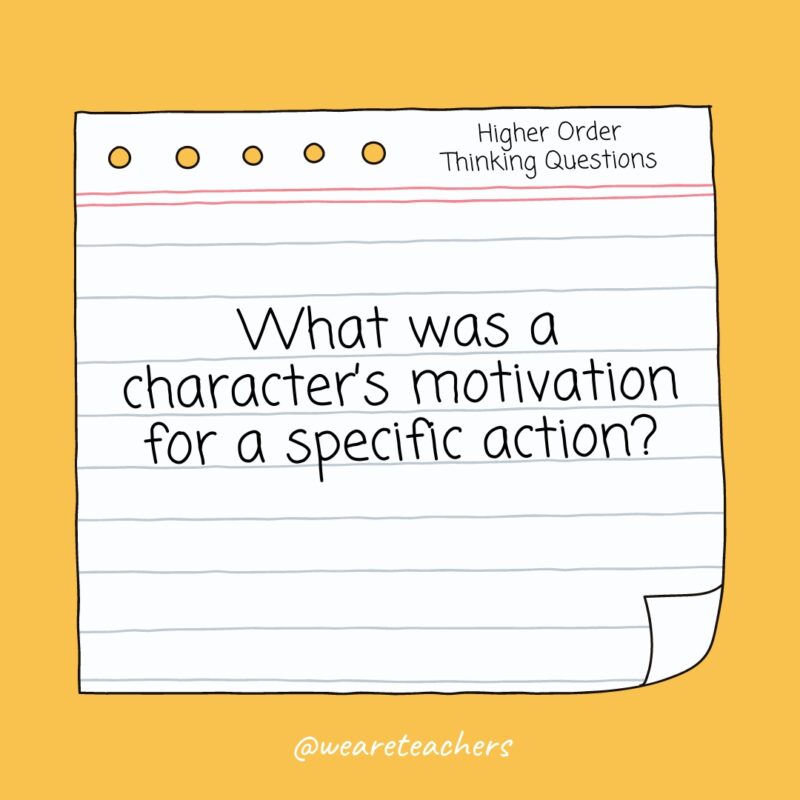
- What is the theme of _________?
- Why do you think _______?
- What is the purpose of _________?
- What was the turning point?
Evaluate (HOTS)
- Is _________ better or worse than _________?
- What are the best parts of __________?
- How will you know if __________ is successful?
- Are the stated facts proven by evidence?
- Is the source reliable?
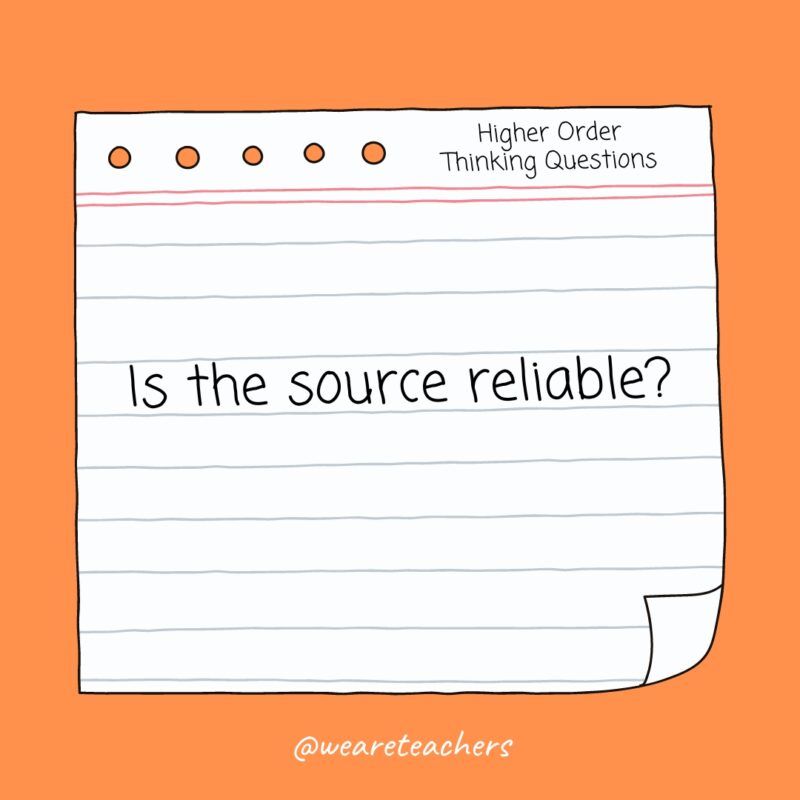
- What makes a point of view valid?
- Did the character/person make a good decision? Why or why not?
- Which _______ is the best, and why?
- What are the biases or assumptions in an argument?
- What is the value of _________?
- Is _________ morally or ethically acceptable?
- Does __________ apply to all people equally?
- How can you disprove __________?
- Does __________ meet the specified criteria?
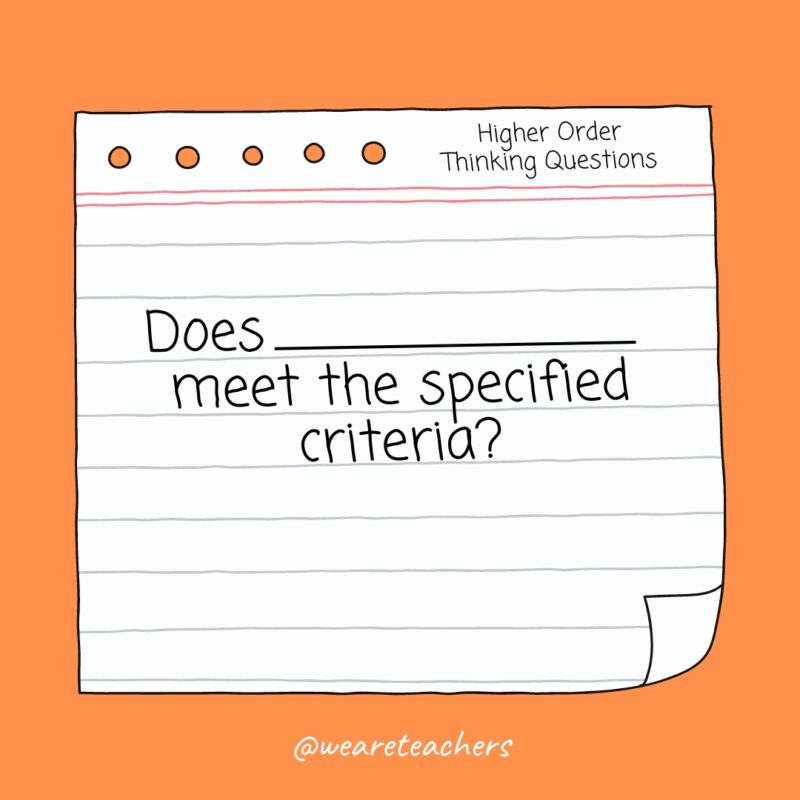
- What could be improved about _________?
- Do you agree with ___________?
- Does the conclusion include all pertinent data?
- Does ________ really mean ___________?
Create (HOTS)
- How can you verify ____________?
- Design an experiment to __________.
- Defend your opinion on ___________.
- How can you solve this problem?
- Rewrite a story with a better ending.
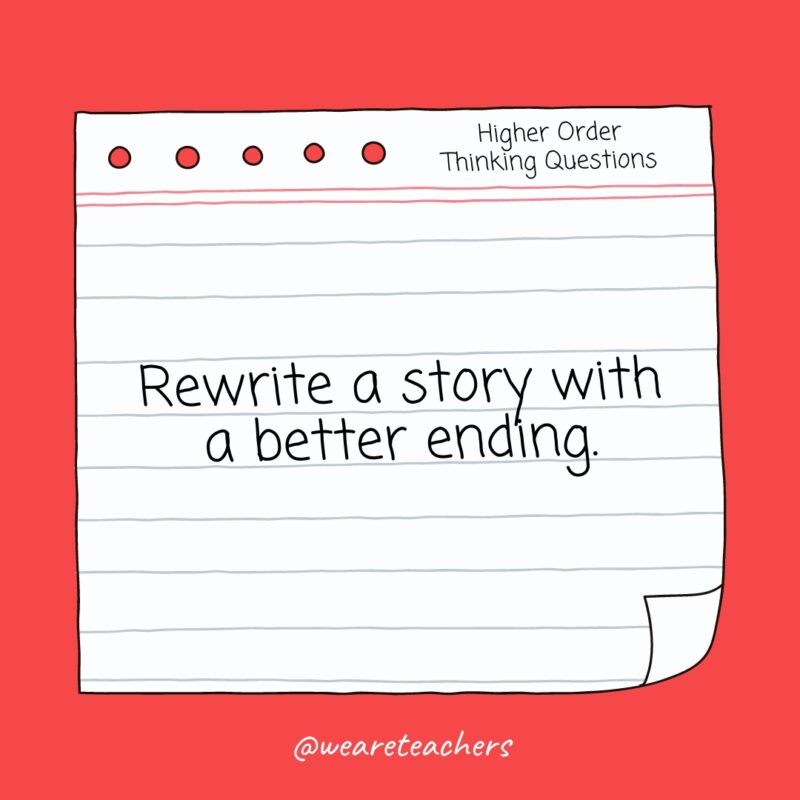
- How can you persuade someone to __________?
- Make a plan to complete a task or project.
- How would you improve __________?
- What changes would you make to ___________ and why?
- How would you teach someone to _________?
- What would happen if _________?
- What alternative can you suggest for _________?
- What solutions do you recommend?
- How would you do things differently?
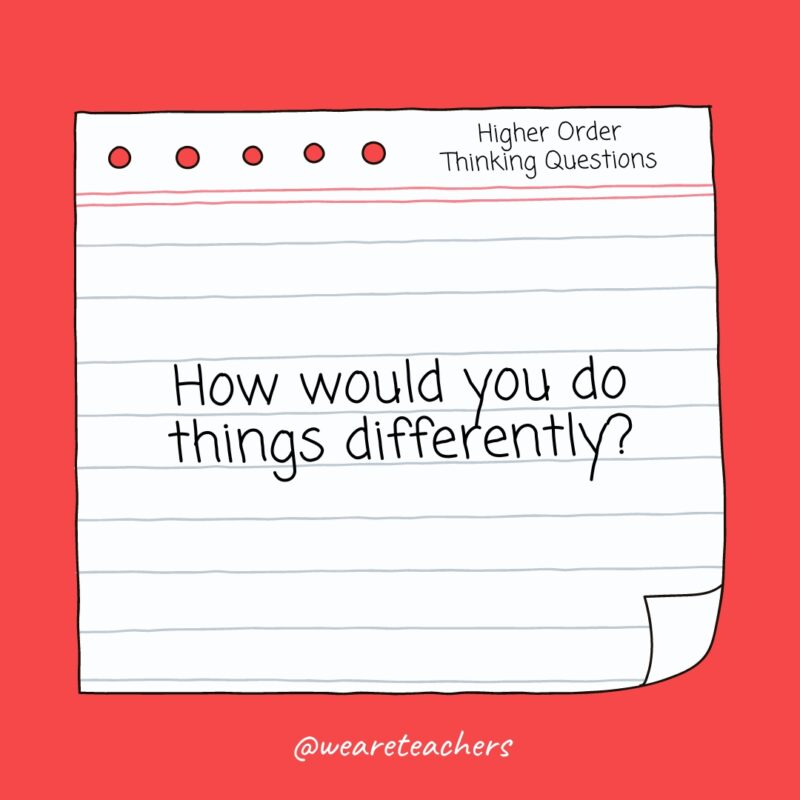
- What are the next steps?
- What factors would need to change in order for __________?
- Invent a _________ to __________.
- What is your theory about __________?
What are your favorite higher-order thinking questions? Come share in the WeAreTeachers HELPLINE group on Facebook.
Plus, 100+ Critical Thinking Questions for Students To Ask About Anything.
[ad_2]
Source link
